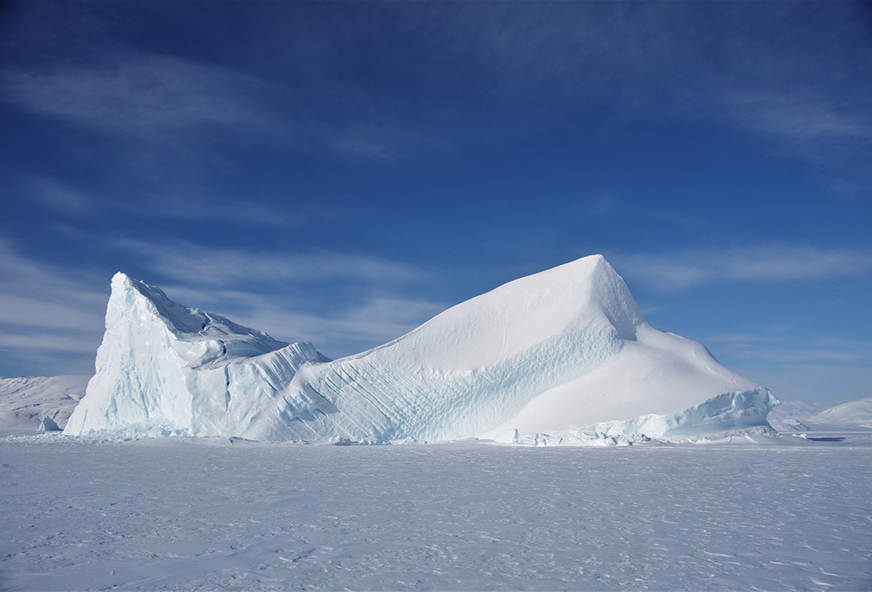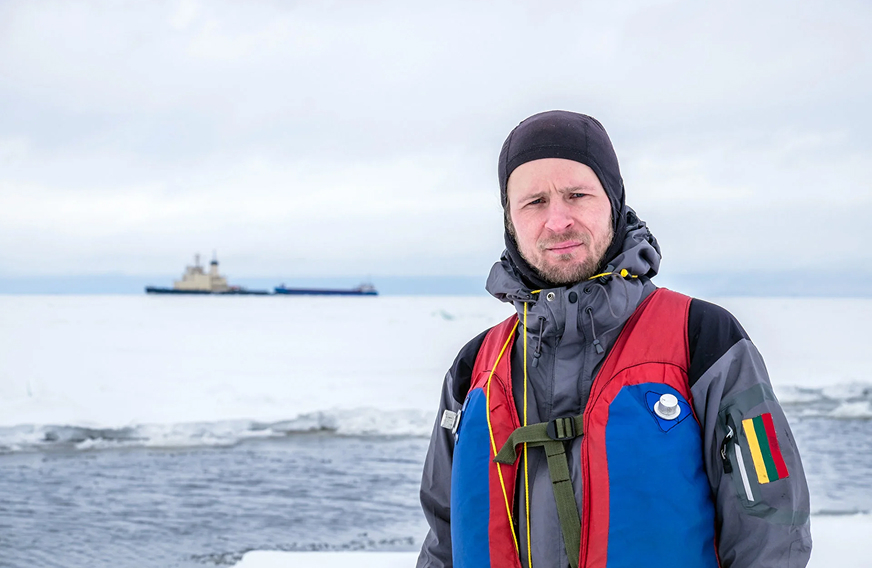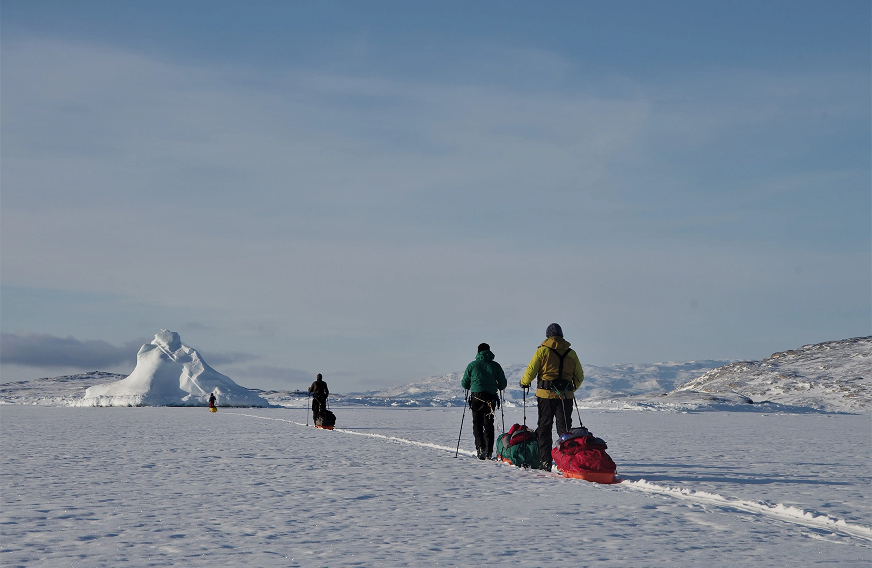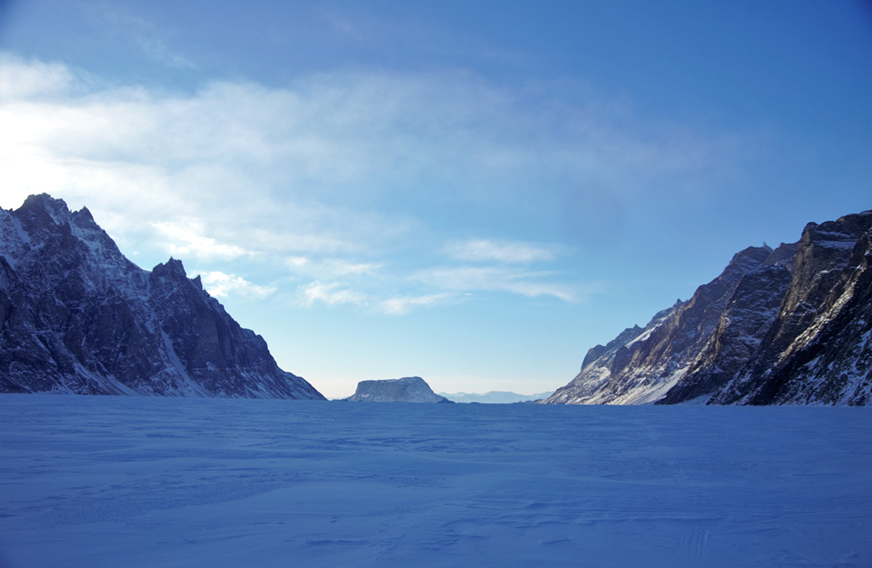Algimantas Kuras
Lessons of Ice and Cold

From personal collection
A conversation about grit, resilience and perseverance with legendary polar explorer Algimantas Kuras
With Algimantas Kuras, traveller, polar explorer, and keynote speaker at @Shibui, the conversation circled around the limits of human endurance, resilience, and the art of adaptation. A fitting topic for these times: pandemic, war in Ukraine, economic crisis pounding from all sides.
If anyone can offer prescriptions for resilience, it’s someone who has learned to survive far from civilisation, among glaciers and snowfields, at minus twenty-five degrees. In fact, these are the kinds of skills many of us have already needed — or soon will — whether at work or in life.
Where cold strips life down to its essence
“The American painter Rockwell Kent once said, ‘Uninhabited and bleak spaces, however grim, are the only places on earth where freedom lives.’ That’s always stayed with me,” Algimantas reflects on his choice to wander through Siberia, Greenland, Scandinavia, Iceland.
So why, I ask him, choose to spend your free time in brutal cold, when the world offers endless sunny beaches?
He smiles. “I don’t like the heat. And sure, I feel the cold — but you adapt.”
Harsh conditions don’t just cut you off from civilisation — they become a laboratory for testing yourself, finding the boundaries of your resilience, and shedding what truly doesn’t matter.
“It’s easy to talk about human potential when you’re warm and well-fed. It’s another thing when you’re in the ice. There, your options are dictated by the environment. Want an example? In Vilnius, you can have pasta or steak with wine. On expedition, it’s rice or pasta, full stop. And you don’t feel deprived. You realise: to survive, we need far less than we imagine.”

From personal collection
The cold: a brutal teacher of efficiency
How do you fight the cold? You don’t, Algimantas says. “You accept it. You survive within it.”
Civilisation offers escape routes — we can quit, make excuses, walk away. In the field, there’s no such luxury.
“When you’ve failed three times to pitch your tent in a storm, you don’t quit. You keep going, because without that shelter, you won’t make it through the night.”
Or take a small repair at minus twenty, in a bitter wind. “You have ten seconds barehanded before your fingers seize up. Then it’s gloves back on, warming your hands in pain. So you learn to think through every step — how to work faster, with less waste.”
Even today, back at his desk as a programmer, Algimantas catches himself applying that mindset: How can I do this more efficiently?
The moment a mistake almost cost his life
Algimantas doesn’t consider himself an extremist — he meticulously prepares, assesses risks, and builds backup plans. But even then, mistakes happen.
In Greenland, crossing a frozen fjord alone, he fell through the ice.
“I was about a kilometre from shore, towing a 60-kilo sled. The moment I hit the water, I knew: one more mistake and it’s over.”
He’d been gambling, pushing forward on thinning ice. The first attempt to claw out failed. The second worked — barely. He pulled his sled free too.
But the situation was worse than he’d realised. The tide was pulling, the ice decaying fast. No time to change clothes — he threw on dry gloves, lengthened his tow rope to spread the weight, and ran. Adrenaline carried him through.

From a personal collection
Fear: an ally, not an enemy
Was he terrified?
“Fear is useful. It helps us avoid danger. And right now, many people feel fear — over war, crisis, uncertainty. I try to use it: to understand its roots, to find ways to respond.”
Before that Greenland trip, Algimantas had feared the hard moments to come — and prepared. Experience taught him to take risk seriously.
And yet, as he points out, people fear the wild but rarely think twice about the risks they take daily — behind the wheel, on a bike. He wears a helmet now, every time.

From a personal collection
Change, growth, and the edge of comfort
“Resilience doesn’t happen overnight,” he says. “You build it slowly, by raising the bar, step by step.”
Twenty years ago, if you’d told him he would cross 650 km of Greenland’s ice, or complete other punishing expeditions, he wouldn’t have believed you.
Travel forces growth. The body protests at first — the cold, the cramped tent — but soon, it adapts. So does the mind.
And it doesn’t have to be the Arctic. A simple change of routine — a weekend in the countryside — can refresh our perspective, spark new ideas.
But the deepest value?
“Travel reveals who you really are — your strengths, your cracks. You won’t always like what you see. But that’s where the real work begins.”
If you want to explore human limits and resilience — from the Arctic to the boardroom — bring Algimantas in as a keynote speaker with his session “Lessons of Ice and Cold” at @Shibui.
